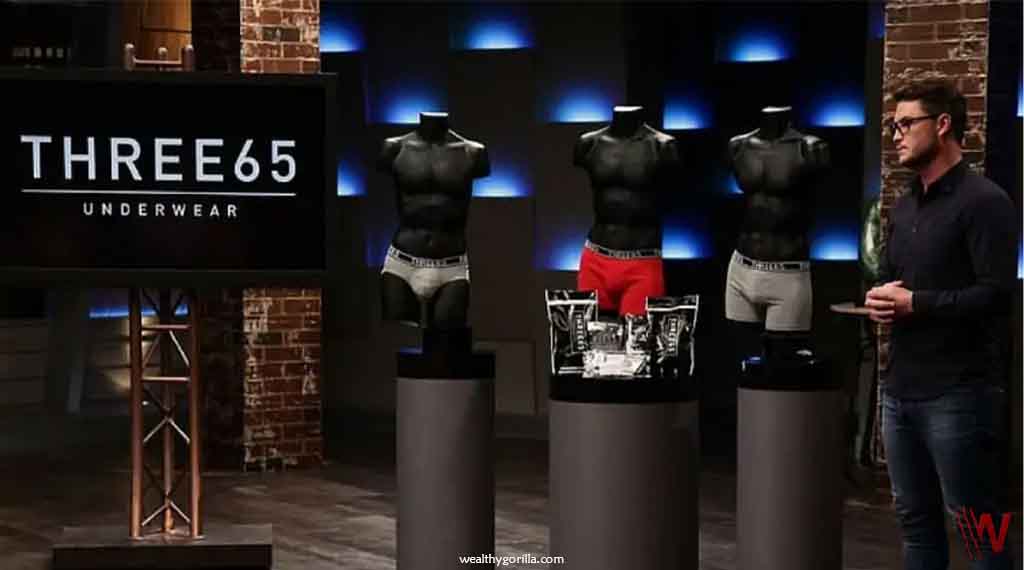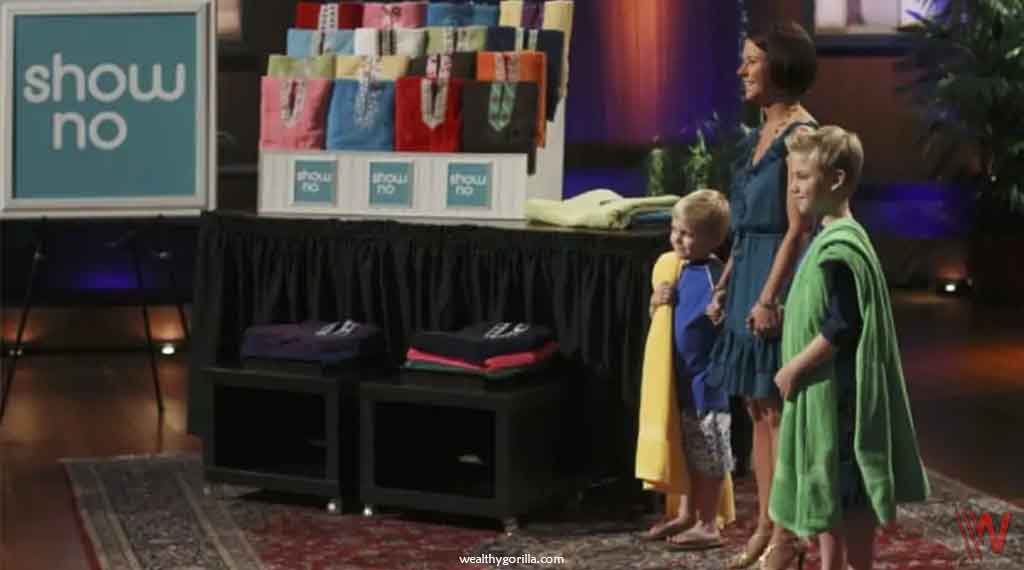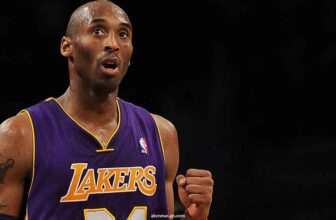Ever wondered about the worst deals that got inked in the history of Shark Tank? Many might recall the “mr poncho shark tank” debacle or the infamous “toygaroo shark tank” incident. Jump-starting a business can be downright scary, almost like walking a tightrope without a net below. Many hopeful entrepreneurs have seen their dreams burn out faster than a match in a windstorm.
So, how does one avoid ending up like Body Jac on Shark Tank? That’s where the show comes into play, a high-stakes platform where entrepreneurs pitch their business concepts to a panel of investors, all under the intense glare of national television. If they’re lucky, they walk away with a game-changing deal.
But it’s not always a fairytale ending, especially if you’ve heard of the Cactus Jack mishap. Some entrepreneurs leave the tank with a triumph, while others… well, let’s just say their stories are more cautionary than inspiring. Failed investments, poor business decisions, and unpredictable market shifts have led to some of the most infamous flops in the show’s history, just like some of the biggest product failures ever seen in business.
So, without further ado, let’s dive headfirst into the worst Shark Tank deals ever made, including the notorious Table Jack misfire.
Shark Tank Hall of Shame
Ranking lists isn’t our hobby; it’s our thing! We do our homework diligently, researching and collecting data from trustworthy internet sources. Here’s our handpicked list of the 10 worst deals ever to go down on Shark Tank:
10. You Smell Soap (Recalling the “you smell soap net worth” Drama)
Investment: A cool $55,000 + $50,000 Salary For a hefty 30% Stake

Enter Megan Cummins – a bright-eyed entrepreneur on Shark Tank’s third season, pitching her fancy soap brand, You Smell Soap. While we’ve heard tales of mega-companies starting from humble garages, You Smell Soap’s journey began with a college project focusing on custom packaging. The project evolved into a bona fide startup when Megan crafted 1,200 bars of soap in two unique scents for market testing.
At first glance, things looked rosy for Megan’s soap venture. She shook hands with Robert Herjavec, bagging an initial investment of $55,000 for the fancy soap firm, plus a $50,000 salary for 30% stake. Sounds good, right?
But alas, things didn’t roll as smoothly as a soap bar. After a few fruitless attempts to follow up with Robert, he re-emerged six months later, slashing his offer to $50,000 for half of the company! Megan, understandably frustrated, declined his “new and improved” offer and kept her business afloat with the help of a different investor.
There was a twist in the tale, though. Another shark, Mark Cuban, initially showed interest in You Smell Soap. But Megan, alas, missed the boat and chose Robert instead. Talk about a soap opera!
9. Three65 Underwear: A Brief Encounter
Investment: $60,000 For a decent 25% Stake

You know, the subscription model has been an absolute game-changer in the retail industry. Just look at Dollar Shave Club and their multi-million dollar revenues!
William Strange saw the golden goose here and figured, “Why not upscale men’s underwear?” So, he plunged headfirst into the shark-infested waters to pitch his start-up, Three65 Underwear.
Now, the sharks smelled potential. After a bit of haggling, Strange sealed the deal with Naomi Simson and Janine Allis, both coughing up $60,000 for 25% of his venture. But here’s the catch – they were worried that Strange might be stretching himself too thin, given that he was also managing a GPS business called Sports Performance Tracking.
Despite their concerns, the sharks took a leap of faith, banking on the solid subscription model Strange proposed. But as they say, too many sharks can make the waters treacherous. Our man Strange was cautioned – sooner or later, he’d have to pick a side.
In a plot twist nobody saw coming, William Strange bailed on the deal and threw his lot in with his own venture, StartupSmart. It was attracting bigger investment opportunities and growing faster. Talk about a strange turn of events!
8. CATEapp: When Love Goes Undercover
Investment: $70,000 For a solid 35% Equity

2021 was the year of the dating app, with consumers burning through a whopping $133 billion on mobile apps. One app, CATEapp, was less about romance and more about playing a cloak-and-dagger game.
Phil Immler, a West Palm Beach cop, birthed the idea of this app. Think less dating and more stealth operations, enabling users to hide their “hush-hush” messages from their partners. CATE, short for “call and text eraser,” was handed over to entrepreneur Neal Desai, who brought it to the sharks, hoping to score a deal.
A bit of negotiation, a touch of ethical debate around aiding infidelity later, a deal of $70,000 for 35% stake was struck between Desai, Kevin O’Leary, and Daymond John.
The aftermath of the show saw nearly 10,000 downloads (70% from women). However, the business deal crashed and burned, even as Desai was marketing the app as a “privacy app” to government agencies and businesses.
While CATEapp may have gone the way of the dodo (last Twitter update in 2013), the market for “cheater-friendly” smartphone apps like CheatMaster is still thriving. You can’t help but wonder, eh?
7. ShowNo Towels: A Damp Squib
Investment: $75,000 For 25% Equity

Sometimes, the best things in life are simple, like Shelly Ehler’s ShowNo towels. They’re kind of like superhero capes, but for bath time – perfect for changing in public without losing your dignity.
In season 3, episode 4 of Shark Tank, Shelly and her two mini sidekicks (her sons) sought a $50,000 investment for a 25% stake. They pitched the idea, answered queries about production, and fielded offers from several sharks.
Finally, Shelly accepted Lori Greiner’s more generous offer: $75,000 for a 25% stake. Post-show, things looked peachy for ShowNo towels. They even scored a deal to supply Disneyland, and Shelly and Lori made a splash on the Today Show.
But alas, a year later, despite the initial buzz, the towel was thrown in. The website ceased sales, and that was a wrap for ShowNo towels.
6. Qubits: A Tough Puzzle to Crack
Investment: $90,000 For 51% Equity

In Shark Tank’s first season, Mark Burginger introduced his brainchild, Qubits – a puzzle toy you can twist into different geometric shapes. He aimed to tap into the potentially lucrative toy market, where top-tier toys can rake in thousands.
Mark was seeking $90,000 for a hefty 51% stake. Daymond John, ready to play, took the deal with one condition – Burginger had to cozy up to one of the top four toy companies.
John brought in Kevin O’Leary to help pitch Qubits to the big boys, but despite their efforts, by March 2010, the deal crumbled. The sharks were out, but Burginger wasn’t done playing yet.
Post-Shark Tank, he landed a deal with Discovery Toys, LLC. A wholesale order wiped Qubits’ debts clean, and the toys began to sell like hotcakes, even reaching six-figure sales in the USA and Canada. Who said puzzles weren’t exciting?
5. The Body Jac: A Heavy Fall
Investment: $180,000 For 50% Equity

Enter Body Jac. This was the brainchild of infomercial star Jack Barringer, aiming to make exercise – particularly push-ups – a cinch. Barringer came onto Shark Tank, hoping to bag a cool $180,000 for the biz.
Kevin Harrington and Barbara Corcoran thought Barringer needed a taste of his own medicine. They challenged him to shed 30 pounds using the Body Jac to prove it worked. He accepted and came out trimmer. As a result, he secured the funds, trading 50% equity.
But here’s the twist, folks. Despite the promising start, the Body Jac tanked. Showbiz Cheat Sheet states the reasons are unclear. The company ceased production and went offline in 2012. Corcoran remembers Barringer as a “fast-talking cowboy,” with his invention gaining infamy as the “worst business deal ever made” on the show. Ouch!
4. Night Runner: A Bright Idea
Investment: $250,000 For 15% Equity

Here’s the story of Night Runner, a solution to nocturnal jogging hazards, invented by Doug and Renata Storer. They fixed rechargeable LED lights on running shoes and sought $250,000 for a 15% stake. Robert Herjavec bit.
However, once off the show, the Storers had second thoughts. According to a Forbes interview, Doug said, “After it aired, we didn’t need the investment anymore… why should we give up equity if we don’t need it.”
They went back on their deal with Herjavec, sought other investors, and managed to make a smashing $1.5 million in their first year. So, even if you get the cold shoulder from the sharks, it doesn’t mean the game’s over!
3. Sweet Ballz: A Sugary Saga
Investment: $250,000 For 25% Equity

Meet Sweet Ballz, a cake ball company. Founders James McDonald and Cole Egger sought $250,000 for a 25% stake in their startup. The plan? To roll out Sweet Ballz in various retailers, with 7-11 in sight. Mark Cuban and Barbara Corcoran hopped on board.
However, the sweet deal soon turned sour. A fallout between McDonald and Egger led to a competing brand, a restraining order, and a lawsuit. A twist came when Sweet Ballz’s website started redirecting traffic to CakeBallz.com – talk about a sticky situation!
When the sugar dust settled, McDonald regained control of Sweet Ballz. Despite the rocky relationship between the founders, Cuban and Corcoran’s decision paid off. The company is thriving today, securing deals with top American food service providers. So, even if the cake crumbles, you can still have a slice!
2. ToyGaroo: A Playful Misstep (Not unlike “mr poncho shark tank”)
Investment: $250,000 For 35% Equity

Ever thought of renting toys for your kids who tend to get bored of them super quick? Well, that’s exactly what ToyGaroo was all about, bringing in a pinch of variety for the kiddos, while being kind to your wallet.
Mark Cuban and Kevin O’Leary were all in, pooling a hefty $250,000 over two funding rounds for a 35% stake. But, here’s the plot twist! The show’s hype brought in a demand tsunami that ToyGaroo simply couldn’t ride.
Founder Phil Smy reckoned if they’d grown organically and at a steady pace, they could’ve finetuned their “free shipping” model. Plus, they struggled to source affordable toys, and that dream deal with Mattel? Well, that was a no-show. By 2012, ToyGaroo filed for bankruptcy, shuttering for good in 2016. As Forbes quotes O’Leary and Cuban, “great concept, but they were unable to execute.”
1. Breathometer: A Breathy Mess
Investment: $1 Million For 30% Equity

Next up, Breathometer, a pocket breathalyzer connected to a smartphone app. Sounds great, right? Charles Michael Yim, whose “charles michael yim net worth” became a popular search after the episode, thought so, asking for a whopping $1 million for 30% equity. The sharks? They were all over it.
Sadly, when it reported incorrect blood alcohol levels, the Federal Trade Commission stepped in. Refunds had to be issued, orders weren’t met, and funds were mismanaged. Mark Cuban labelled it “the worst execution in the history of Shark Tank”. But, surprise, surprise! Breathometer is still kicking, now focusing on detecting bad breath and gum disease.
The Recap
Whew! We just took you on a roller-coaster ride through some epic Shark Tank fails. From dubious apps aiding infidelity to a breathalyzer that, well, didn’t quite measure up. These misfires cost the hosts and aspiring entrepreneurs a pretty penny, despite a viewership of over five million!
Yet, only 12 out of the 210 companies featured between seasons five to nine crashed and burned. So, startups, don’t shy away from the Tank, it might just boost your odds!
Got a favorite Shark Tank disaster? Let us know in the comments below. You gotta love a good train wreck, eh?
Frequently asked questions:
What is up with Lori’s hair on Shark Tank?
Yo, peeps started speculating that Lori might be rockin’ a wig, thinking her mane ain’t legit. But here’s the tea: she’s been loyal to that hairstyle for time. Peep her old pics and you’ll see she’s all about that center-parted, blonde life.
What were the worst Shark Tank deals?
Some straight-up dud deals from Shark Tank:
• Breathometer.
• ToyGaroo.
• Sweet Ballz.
• Night Runner.
• The Body Jac.
• Qubits.
• ShowNo Towels.
• CATEapp.







